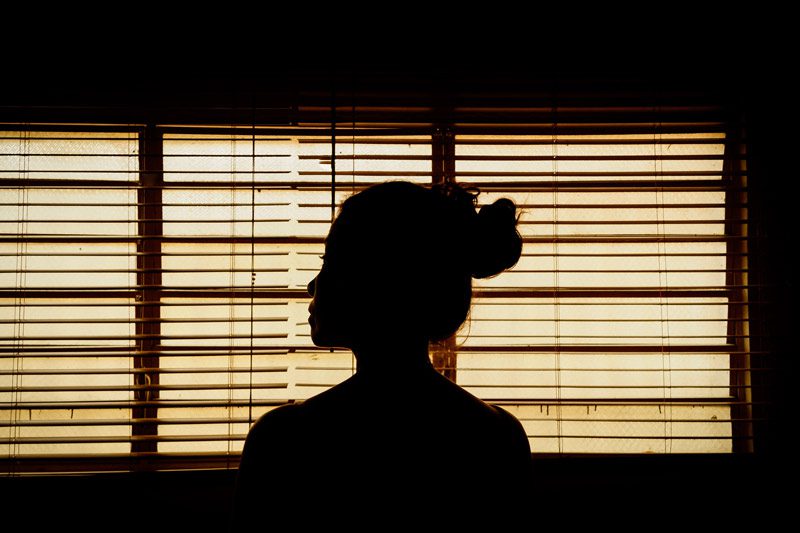Mental health is a challenge for many people. Over 26% of US adults a year are diagnosed with a mental health disorder, and of those, 2.2 million are affected by obsessive-compulsive disorder.
Obsessive-compulsive disorder (OCD) is a mental health disorder that causes people to have unwanted thoughts and compulsions. Obsessions are typically intrusive thoughts or urges that result in stress. Compulsions are physical behaviors one does to try and get rid of the obsessions.
Personal Story
I am an adult who has OCD. My whole life, this has been something I’ve had to manage. According to this article, “about half a million children in the United States suffer from OCD.”
As a child, my OCD was never diagnosed, which led me down a spiral of compulsions and intrusive thoughts that had no potential to improve.
It caused me to do poorly in school—specifically elementary school as I was only diagnosed in high school—and to struggle with everyday tasks as a child.
Discovering my diagnosis and getting treatment helped me cope with the disorder. OCD is not something you can treat with 100% effectiveness. It will always be there. But getting help is vital as it can enable you to better manage the disorder.
Social Life
When transitioning into adulthood, we are already dealing with the stresses of leaving college, paying bills, buying a house, etc. But adults with OCD struggle with the stress of compulsions and intrusive thoughts on top of that.
Living with OCD, you can feel alone and misunderstood because not everyone understands the disorder, and there are so many negative thoughts and opinions surrounding it. Fear of being judged causes people to suffer in silence with their struggles.
Work Life
Picture this, you just got your dream job, and it’s your first day. You’re in a meeting, but you can’t focus. All you’re thinking about is whether or not you locked your car door.
You did, didn’t you?
But your mind is telling you differently.
You’re surrounded by those constant distractions within you, but no one else but you can tell. Though you may seem calm and collected on the outside, you’re struggling on the inside.
Work can already be a stress factor, but adding OCD on top of that can create an even bigger ball of stress. With co-workers unaware of the struggles that you may be facing, this can cause problems at work.
OCD can impact your work life by causing you to take longer time on tasks due to having to check over things repeatedly. You might also feel an increase in anxiety or have trouble socializing and creating relationships with colleagues.
These situations can cause you to feel alone.
If possible, consider communicating with your boss about your OCD. It’s not easy to talk about your struggles, but if it’s negatively impacting your work life, speaking with someone about it could help you in the long run. Perhaps you can come up with some ways to modify your tasks to make them less stressful for you.
It’s also important to identify your struggles within yourself. You know yourself better than anyone. By knowing what triggers you, you’ll be able to identify those things ahead of time, reducing stress and giving you a chance to work around them.
Remember, you’re not obligated to talk about your OCD, but you shouldn’t feel that you can’t speak about it. Your struggles are significant. An easier work life is a better life.
Relationship Life
For some, relationships can become the main focus of their OCD. Their thoughts can become repetitive doubts about feelings for their partners. For example, “Do I really love him?” or “Am I really attracted to her?”
The need for reassurance in relationships is another common issue for people with OCD due to their fear and insecurity. The constant need to reassure a partner with OCD can result in mental and emotional exhaustion.
Family Life
In family life, both adults and children can experience similar situations regarding their OCD.
Loss of patience can become a problem for friends and family who must adjust to a loved one’s need for space and allow time to carry out OCD rituals. Suffering from repetitive thoughts and compulsions can also cause depression due to mental exhaustion. This can result in constant worry from friends and family.
Isolation is another problem people with OCD experience due to feeling embarrassed and ashamed, causing them not to want to engage with family and friends.
You Are More Than Your OCD
Dealing with this disorder as an adult can have various negative consequences, but that doesn’t mean it’s impossible to live a happy life. Getting help for your OCD can help you better manage the disorder.
Remember, you are heard and seen, and you are more than your OCD.
If you or someone you know experiences mental health issues, it is important to seek help from a qualified professional. Our Resource Specialist can help you find expert mental health resources to recover in your community. Contact us now for more information on this free service to our users.
About the Author: Elizabeth Flynn is a freelance blog writer who specializes in writing about mental health and beauty.
Photo by Jorge Salvador on Unsplash
The opinions and views expressed in any guest blog post do not necessarily reflect those of www.rtor.org or its sponsor, Laurel House, Inc. The author and www.rtor.org have no affiliations with any products or services mentioned in the article or linked to therein. Guest Authors may have affiliations to products mentioned or linked to in their author bios.





